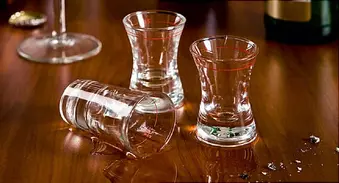Quiz: The Truth About Hangovers


Question 1/14
Hangovers aren’t a big deal.
- True
- False
Question 2/14
You get a hangover only if you binge drink.
- True
- False
Question 3/14
To lower the risk of getting a hangover, drink water:
- Before drinking alcohol
- While drinking alcohol
- After drinking alcohol
- All of the above
Question 4/14
Drinking is harder on a woman's body.
- True
- False
Question 5/14
You may not get as bad a hangover if you drink:
- Wine of any color
- Beer and clear liquor
- Mixed drinks
Question 6/14
Which of these drinks is most likely to result in a hangover?
- Rum and orange juice
- Rum and soda
- Rum and diet soda
Question 7/14
Liquor before beer, you're in the clear?
- True
- False
Question 8/14
Eating pasta before bed eases a hangover.
- True
- False
Question 9/14
Which of these may prevent a hangover headache if you take it before bed?
- Aspirin
- Ibuprofen
- Acetaminophen
- None of the above
Question 10/14
Having a few drinks before bedtime won't help you sleep.
- True
- False
Question 11/14
Which of these may make a hangover more bearable in the morning?
- Coffee
- A cocktail
- Crackers
Question 12/14
Some herbal remedies have been shown to cure hangovers.
- True
- False
Question 13/14
Alcohol poisoning can be deadly.
- True
- False
Question 14/14
Over time, drinking too much can cause:
- Liver disease
- Brain damage
- Cancer
- All of the above